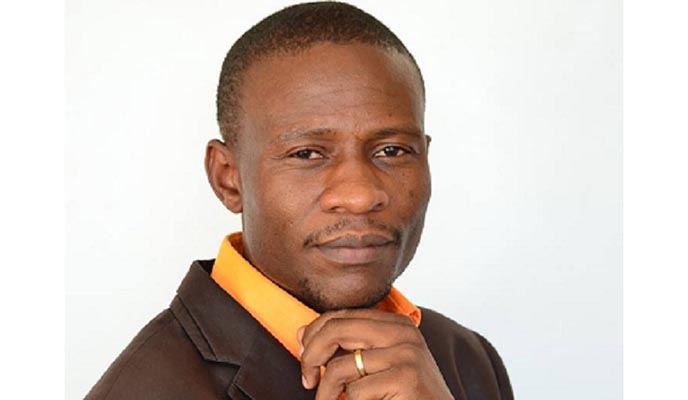
Leaders need to cultivate positive energy in the boardroom. The attitude, behaviour and the candour of the boardroom lead to its success. I engaged Jonathan Foster-Pedley who leads Henley Business School, South Africa. According to Financial Times, Henley Business School is now ranked number one in Africa for its executive education.
By JONAH NYONI
Dean and director, Jonathan Foster-Pedley has worked in six continents and has over 30 years of global business experience.
He is a former airline pilot and senior executive in the European aerospace industry, and has guided and facilitated cohesion and productivity in international and local multicultural sales and marketing and management teams.
He is also an entrepreneur, a leading academic and coach (working as a visiting professor in strategy, creativity and innovation), and a writer and blogger.
Foster-Pedley’s expertise in strategy, creativity, design, thinking and innovation are key features of the Henley Business MBA curriculum.
He has developed hands-on programmes designed to stimulate innovative business thinking strategies, to increase productivity in the workplace, and develop self-confidence, self-belief, creativity, proactivity and out-of-the-box thinking.
Foster-Pedley has the business acumen, the academic prowess, and the social conscience to direct Henley students, so that they reach the full productive potential in every facet of their daily lives.
- Chamisa under fire over US$120K donation
- Mavhunga puts DeMbare into Chibuku quarterfinals
- Pension funds bet on Cabora Bassa oilfields
- Councils defy govt fire tender directive
Keep Reading
I (JN) interviewed Foster-Pedley(FP) and here are the excerpts on boardroom dynamics:
JN: Leadership is created or crushed in a boardroom. What boardroom dynamics would you propose for an effective boardroom?
JF: You have to strike a balance between being abstract and thinking of the big picture. You really need to deeply understand the nature of your business and how to get things done.
Big dreams are good, but you must also consider the granular side of business. Secondly, you have to have strong opinions that a rightly held. You must have strong opinions, but they must be malleable to good arguments.
There are different types of arguments. The worst arguments is when it’s all about attacking the person rather than the idea and getting all political.
A good argument is when you come up with your own alternative ideas. The best argument goes to the core of the matter of that idea and the use of evidence to refute the core of it.
A good director then is able to see what is the heart of something in a rational respectful manner. That has to be argued strongly and not try to confuse it with amateur or self-interest viewpoints. Understand the nature of what’s going on. Understand the core. The other thing — board members have to be prepared to be honest, and straight.
JN: In the boardroom, we may have younger people who want to positively disrupt things and probably the older that want to keep-up-to old tradition. How do we resolve this disparity between the one who want to disrupt and the one try to maintain?
JF: Both the young and the old may be thoughtless and you don’t need such for your boardroom.
Firstly, you have to choose proper people that know business to be on the board. It’s important that you have youthful energy. What you don’t want is unrestrained egos, such as people who think they are young and smart and they have all the answers.
Also you don’t want dinosaurs, who don’t want to adjust to progress. So you have to choose intelligent people, who have the interest of societal development through business. Again, you have to think intelligently and collectively.
JN: How does coaching help to align boardroom dynamics in a given organisation?
JF: Coaching helps you to grow in a more organised way. A coach would help for example in team dynamics growth. Coaching brings clarity and consciousness to priorities of any board.
JN: Let’s talk about power dynamics in the boardroom. Which has to a greater extent led to corruption starting in the boardroom.
JF: Power dynamics play a big role in the success or failure of any organisation.
For example, when there is corruption in an organisation it becomes a “captured state”.
Secondly, corruption may lead to nepotism and that means wrong inexperienced people from family members will be employed. Task will not be properly executed and money might not be put to proper use.
With corrupt leaders, you can’t deliver. This will inhibit young talented and entrepreneurial people from getting opportunities. This is true with Africa in general, as a continent we must shun corruption.
Corruption has perpetuated failed states and those captured states are incapable of producing results and creating opportunities.
So boardrooms of captured companies usually make short-term decisions that will benefit individuals at the expense of the whole entity. This will end up making things to cost more, services going down, inflation rising.
In the country, people who suffer the most are the poor. They will keep on growing poorer and poorer, because they are held up by a cabal of people holding on to organs of power.
At boardroom level, what do you do to avoid corruption? The first thing, if your team is in a captured state is to challenge things that go wrong. Be transparent and be more assertive.
JN: What would be your motivation to the chairperson for an effective boardroom?
JF: Your job as a chairman is to set the tone and the purpose of the organisation, not only for making money, but observing corporate ethical issues.
A good chairperson uses money for the good of the organisation, as to add more value.
A chairperson is someone who leads, builds energy, leads direction and build other people to create more value.
lJonah Nyoni is an author, success coach and certified leadership/business trainer. He is the author of Inspiration for Success and Success Within Reach. Contact details: Tel: 0772 581 918. Email: [email protected]. Twitter@jonahnyoni.











